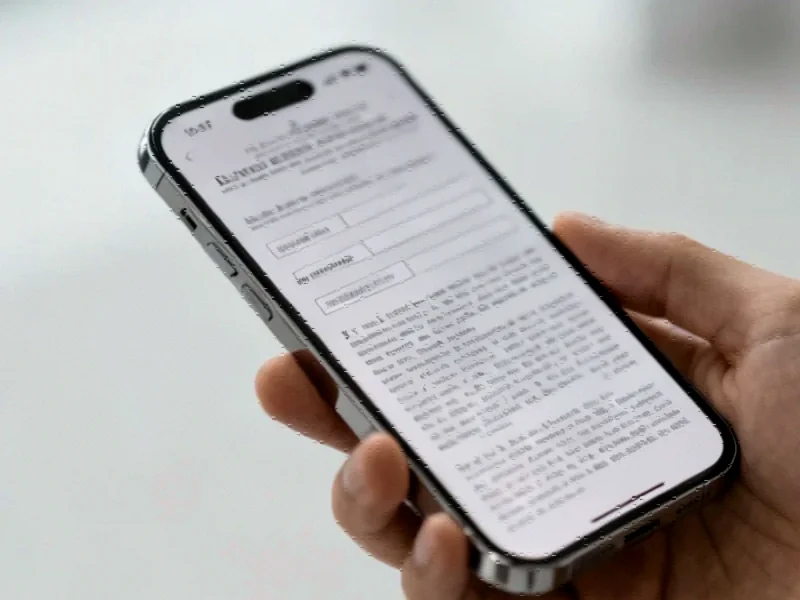Unlikely Allies Challenge Texas App Store Legislation
In an unprecedented alignment of interests, Silicon Valley’s most powerful corporations and student advocacy groups have joined forces to contest Texas’ controversial App Store Accountability Act. The legislation, scheduled to take effect in January 2026, mandates comprehensive age verification for all app store users in the state, requiring both minors and adults to undergo identity confirmation processes before downloading applications or making in-app purchases.
The dual legal challenges—filed separately by Students Engaged in Advancing Texas (SEAT) and the Computer & Communications Industry Association (CCIA)—represent a significant confrontation between digital privacy advocates, corporate interests, and state regulatory authority. This coalition of unlikely bedfellows underscores the broad concerns surrounding the law’s potential implications for free speech, privacy, and digital access.
Legal Foundations of the Challenge
Ambika Kumar, legal counsel for SEAT, articulated the constitutional basis for their opposition in stark terms. “The First Amendment does not permit the government to require teenagers to get their parents’ permission before accessing information, except in discrete categories like obscenity,” Kumar stated. “The Constitution also forbids restricting adults’ access to speech in the name of protecting children.”
The legal complaints characterize the Texas law as imposing a “system of prior restraint on protected expression” that conflicts with established constitutional principles. This perspective suggests that the legislation could set a concerning precedent for how states regulate digital content access, with potential ripple effects across the technology sector and related innovations in digital marketplaces.
Industry Concerns and Existing Protections
Major technology companies emphasize that current app store ecosystems already provide robust parental control options that allow families to manage children’s digital access without imposing universal verification requirements. Apple’s App Store, for instance, includes sophisticated parental controls that enable restrictions on downloads, purchases, and content access—though these features remain optional and require active parental configuration.
Stephanie Joyce, senior vice president at CCIA, highlighted this distinction in the organization’s press release. “We support online protections for younger internet users, and those protections should not come at the expense of free expression and personal privacy,” Joyce asserted. Her statement reflects the industry’s position that the Texas law represents an overly broad approach to youth protection that unnecessarily compromises adult users’ rights.
Privacy Implications of Universal Verification
The legislation’s requirement for comprehensive age verification raises significant data privacy concerns that extend beyond the immediate legal challenges. Implementation would necessitate users providing government-issued identification to app store operators, creating new databases of sensitive personal information vulnerable to security breaches.
This approach contrasts with emerging privacy-focused industry developments in other sectors, where minimizing data collection has become a priority. Critics argue that the verification mandate creates unnecessary privacy risks while potentially failing to accurately distinguish between minors and adults, particularly for users near the age threshold.
Broader Economic and Innovation Context
The Texas legislation emerges amid increasing regulatory scrutiny of technology platforms worldwide. However, the specific approach taken by Texas lawmakers represents a departure from more targeted regulatory efforts. The requirement for universal age verification could potentially impact market trends in app development and distribution, particularly for smaller developers who lack resources to implement complex verification systems.
This legal confrontation occurs against a backdrop of evolving digital governance, where policymakers are grappling with balancing protection, privacy, and access. The outcome of these lawsuits could influence how other states approach similar legislation, potentially creating a patchwork of conflicting requirements across jurisdictions.
Constitutional Questions and Future Implications
At the heart of both legal challenges lies the question of whether states can compel private companies to implement speech-restrictive systems in the name of child protection. The lawsuits argue that the Texas law violates fundamental First Amendment principles by restricting access to lawful content and compelling speech from app developers.
As this priority coverage of the legal battle illustrates, the resolution of these cases could establish important precedents for digital rights, state regulatory authority, and the balance between protection and freedom in online environments. With the 2026 implementation date approaching, the technology industry and digital rights advocates are preparing for a prolonged legal confrontation that may ultimately require Supreme Court intervention.
The unification of corporate and student interests in this challenge demonstrates the unusual alliances forming around digital governance issues. As these cases progress through the judicial system, they will likely shape not only Texas’ regulatory landscape but also the future of digital access and privacy protections across the United States.
This article aggregates information from publicly available sources. All trademarks and copyrights belong to their respective owners.
Note: Featured image is for illustrative purposes only and does not represent any specific product, service, or entity mentioned in this article.



